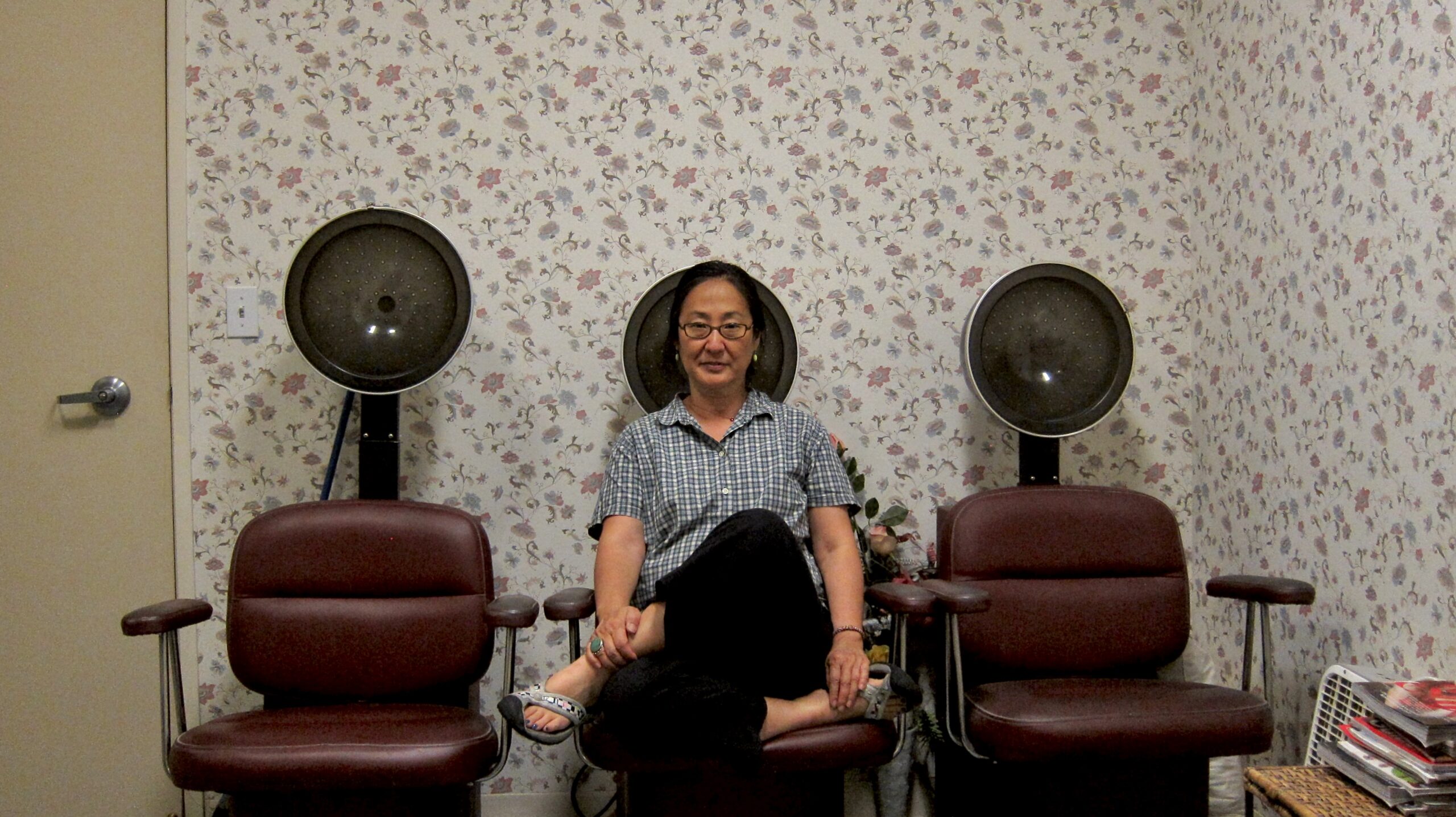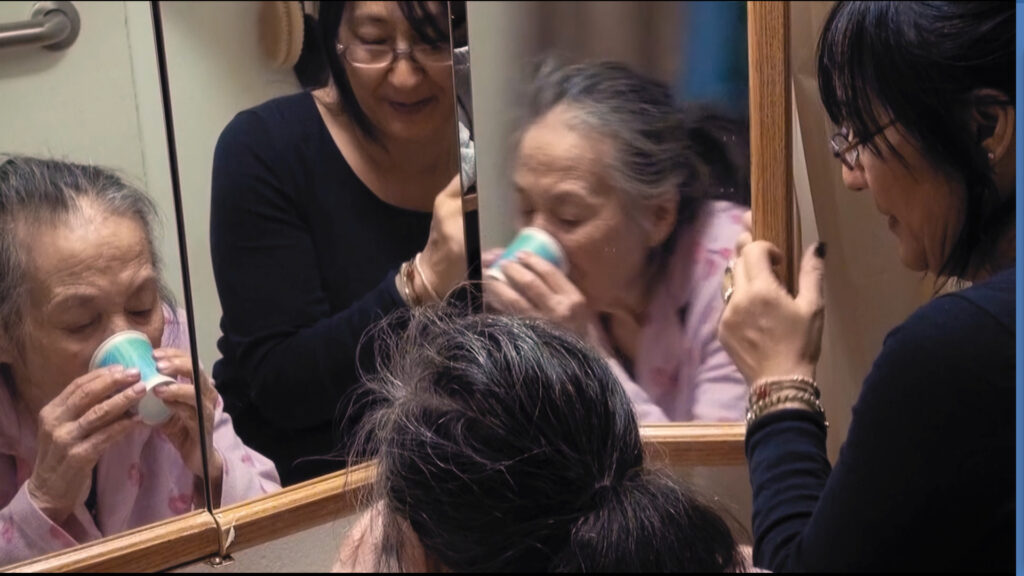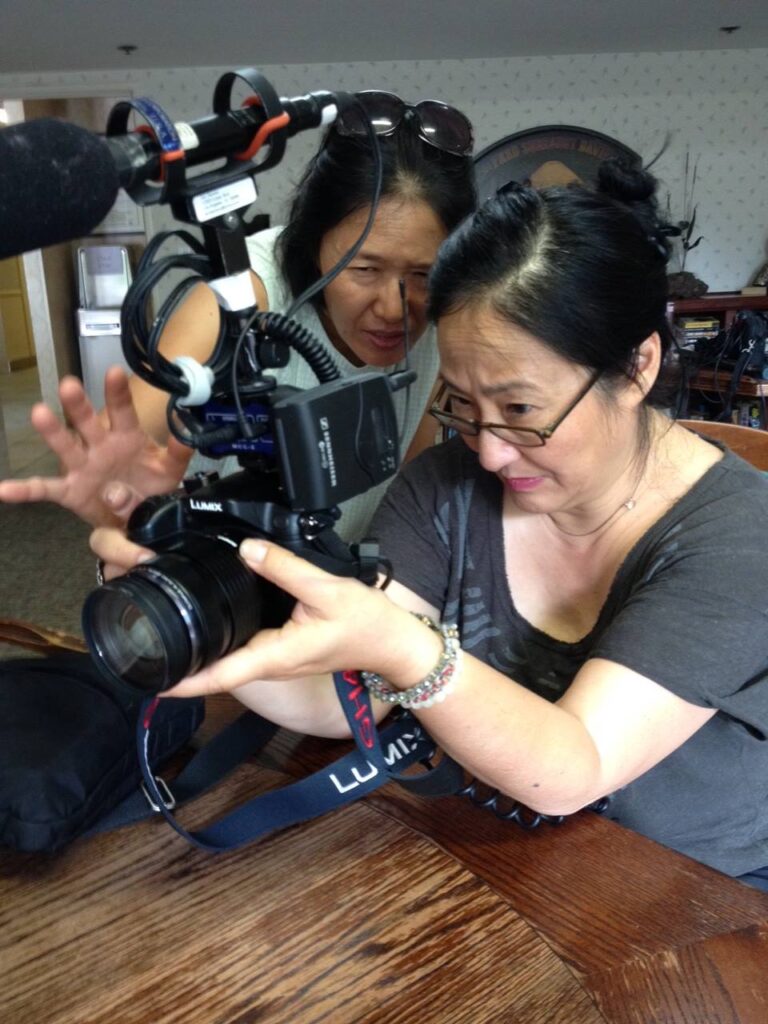
25 Oct Magic, Memory, and Making Time For Elders: Filmmaker Rea Tajiri on Wisdom Gone Wild
BY HANSEN BURSIC
When Philly-based filmmaker Rea Tajiri set out to make a film about her mother who was diagnosed with dementia, she couldn’t have imagined the decade-long journey she would be undertaking, or how it would impact the way she viewed aging. In fact, she was hesitant to even start that journey until encouragement from members of her Temple University documentary class ignited her curiosity for exploring a new kind of film for the veteran director.
The documentary, titled Wisdom Gone Wild, takes a radical new approach to telling the story of memory loss, one which rejects tragedy narratives and embraces joy. The film recently had its world premiere and won an Audience Award at BlackStar Film Festival, one of the US’s largest BIPOC film festivals, based here in Philadelphia.
cinéSPEAK caught up with Tajiri after her premiere to chat about the new documentary, why Philly’s BlackStar was the perfect festival to debut the film, and what she hopes people learn from the film about caregiving.
This interview was edited for length and clarity.

Hansen Bursic: I am curious, although I think I already know the answer, why did you choose to premiere Wisdom Gone Wild in Philly at BlackStar?
Rea Tajiri: I am a big fan of BlackStar. I think that Maori Holmes* really created a very special space. And it’s just very unique.
I thought that this film can be misread as just being a sentimental story about somebody’s mother who’s dying or something. I thought that the audience of BlackStar would really understand all the references to ancestors and time and the spiritual dimensions of the film, and they would be receptive.
I was looking forward to being at that festival, being in that space with so many people that I know. The festival brings out so many great people every year, and you never know who’s going to be there. So I thought it would be a good opportunity.
*Editor’s Note: Maori Holmes is the founder of BlackStar and the festival’s current Chief Executive & Artistic Officer
HB: There was such a long journey to this premiere. How long did it take from the moment you came up with the concept of the film to now?
RT: Yeah, it’s probably been about 10 years. I mean, I started taking care of my mother in 1998, ‘99. I never really wanted to make a film because everybody would say, “Make it into a film,” and I never wanted to.
I shot a sequence of my mother, just doing handheld tracking, and I went to show that to my documentary class. I demonstrated it to them and they said, “Wait, she’s really interesting. Are you going to make a film out of this? It’s really good!” And so then I thought, “Okay, well, maybe I should try.”
That was about 2012 and then I got really serious in 2014. I decided to hire a DP to go out with me. And we went out, and we shot the footage that was in the museum with the yellow streamers. And that turned out unexpectedly well. It was just magical.
HB: Let’s talk about these surreal, magical dream spaces that you create in the film. Can you talk a little bit about what these scenes represented for you?
RT: It’s something that happened, certainly at that moment, but it had happened other times and that was kind of the interesting part about engaging with my mum, or I think engaging with many people with dementia. They do kind of go back and forth in time in this really interesting way. It’s sort of very dreamy.
I think the challenge was, just how do you integrate these sort of magical spaces with the kind of mundane every day? But it kind of made sense. Because, you know, caregiving is very mundane, but interspersed in that are also these weird moments where my mother would just trip out and say all sorts of interesting things.
All her life she was very closed and careful. But in dementia, she started becoming very hilarious. She really liked joking with people. And she could light up the room. In the dining hall, she would crack jokes and do all sorts of interesting things.

HB: This is all so interesting because there have been many documentaries about memory loss, Alzheimer’s, and dementia. Many are very sad. How do you think your film, which feels very different, fits into this canon of films about dementia and memory loss?
RT: Some of these films get into that state of, “She was this person, and now she’s this. She was a nuclear scientist, but now she can’t remember how to count.” You know? These weird tragedy narratives. And I wanted to see if we could center my mother and center her stories and her different wisdoms through the different things that she did.
I think also on other levels Asian American family caregiving is a big thing, but we don’t really see that very often in films because it’s very private. Especially in the Japanese American community, it’s a taboo. But I didn’t think that it was shameful.
One thing that I’m hoping people reflect on [with Wisdom Gone Wild] is aging and thinking about the people who are in their life, who are elders, and embracing this idea of getting their stories, listening to their stories, and engaging with them.
We’re all going to age, we’re gonna lose certain things. It’s about building that sense of care. What it means to care for people, each other, and for our elders. Giving them space and not being dismissive of their changes.
*Featured Image: Image of Rea Tajiri in a beauty parlor. Courtesy of Rea Tajiri.
Wisdom Gone Wild is screening virtually at the Philadelphia Asian American Film Festival from November 3 – 13 with a live virtual Q&A with Tajiri on November 5 at 2:30 pm EST. It will also be screening in person at the San Diego Asian American Film Festival as their centerpiece film on November 6 and DOC NYC on November 11.

Hansen Bursic is a filmmaker and journalist currently serving on the Editorial Board of CinéSPEAK. He is the Marketing Manager at Outfest, which runs the largest LGBTQ film festival in the world out of Los Angeles, and has bylines in CinéSPEAK, Documentary magazine and QBurgh.

Sorry, the comment form is closed at this time.